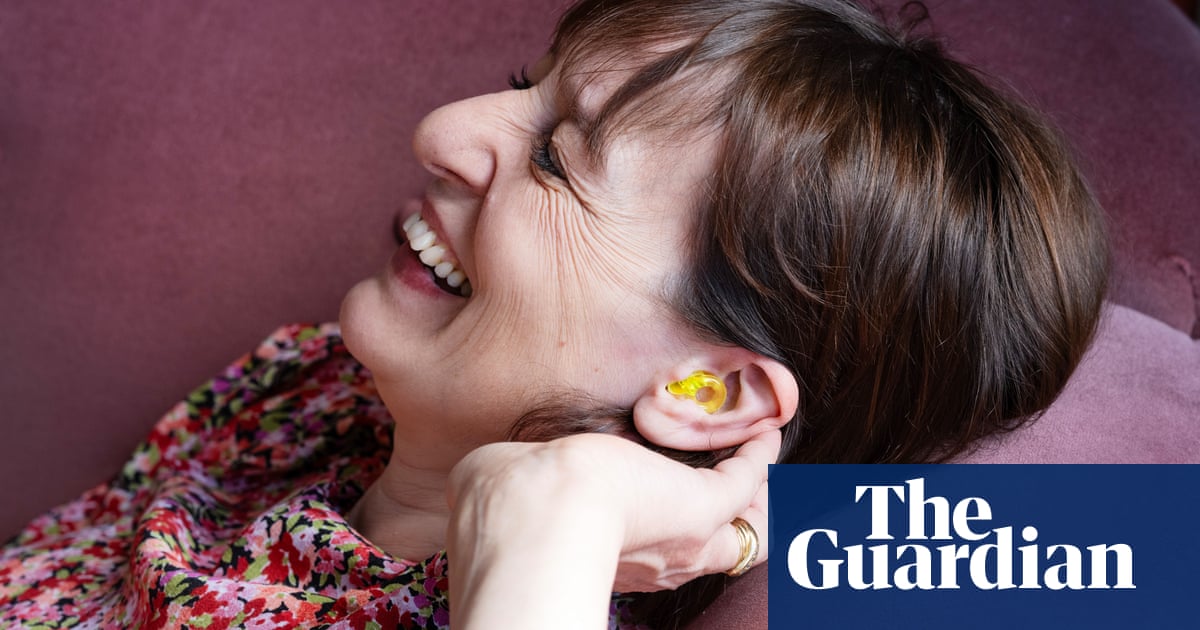When something is a must-have accessory for Taylor Swift fans, it’s faster to say everyone’s got some: within a certain age range, that is.
Loop earplugs, designed to protect the ears, came to market in 2016 and the company has tripled its revenue since, reaching €126m (£107m) in 2023. These aren’t any old foam earplugs, but little nifty silicone ones that come between the roar of the crowd and your two-in-a-lifetime eardrums.
Technology has moved on and there are adaptations so that, for instance, in a concert, you can hear the music but not the fans, or in a pub, you can hear your friend but not the strangers. That’s the theory, anyway.
This will sound bad, but I take it as a personal affront when I walk into my local pub, and there are large numbers of people I don’t know in there, audibly enjoying themselves. I’m fine with carousers; I just prefer it when they are known to me, so as you can imagine, the Euros are my personal hell.
I tested these earbuds at Glastonbury, however: for music, fans, weird noises, hedonism, strangers, screaming, basically, for everything except vuvuzelas, it’s as challenging a zone as you’ll get.
Loop is not the only brand available, but the USP is that they’re designed to look like jewellery, the buds attached to glitzy hoops, which nestle in your ears. Without that, you’d just look like a person, in a crowd, listening to music, wearing earplugs. And who would do that?
Well, tons of people, it turns out: the “Experience” Loops, designed for festivals and concerts, aren’t meant to cancel out the music, just shave off the excess that harms your ears. If 100 decibels for 15 minutes can cause permanent damage, 110dB is typical for live music, though an outdoor concert won’t reach that. There’s also – and this may be particularly relevant for Swifties – the screaming. The worst thing that’ll happen to you in a Squeeze gig is a guy who mutters every lyric a fraction too early (just because he can), but at a Taylor Swift or K-pop gig, a fair proportion of the crowd will be screaming all the way through (just because they must). Loops, in theory, screen all that.
But that wasn’t my experience. They looked awesome; particularly if you don’t have your ears pierced, this is a cute embellishment, you feel like Ferdinand the Bull. Certainly, the stage noise is less, but being slightly too loud is a large part of the point of live music. The sensation is one of being there but not there. Nice work, lads, I no longer feel elated. So I may as well be listening to this Flamingods DJ set on the sofa at home.
The crowd noise, meanwhile, wasn’t that much dulled, except that it does hold you slightly separate, in your own head. You know when you get to a checkout, and you’ve forgotten to take your headphones off because you’re rude, and even though there’s nothing playing, your interaction with the cashier is fractionally less warm? It’s like that, except with the world.
And yet, they’re a great ice-breaker with generation Z, who love them. Thirteen-year-old Ash explained all their pairs, one with a special inner disc for sleeping, one when you just want to listen to a teacher and not your idiot peers. Those would be the Loop Quiet and the Loop Engage, respectively.
Adults can use Loop Engage in restaurants, for when you only want to hear your own table, not the one next to you. I only go to restaurants to eavesdrop, so this perplexed and annoyed me, but in fact, they weren’t a total stranger-cancellation device. They’re only little bits of carefully engineered silicone; they’re not magic. They draw you quite subtly into your direct aural environment, and you probably are a little less distractible, though I didn’t put them to the real test, which is whether you can focus on your friends when someone behind you drops a cutlery drawer.
Years ago, I interviewed a club DJ who was trying to raise awareness about tinnitus. People think hearing damage means hearing less, he was trying to get across; in fact, it means hearing much more, an annoying noise, all the time. It took decades, but that message has finally landed: Gen Z and millennials are protecting their ears in earnest, and if old timers don’t get it, well, our damage has probably already been done.

